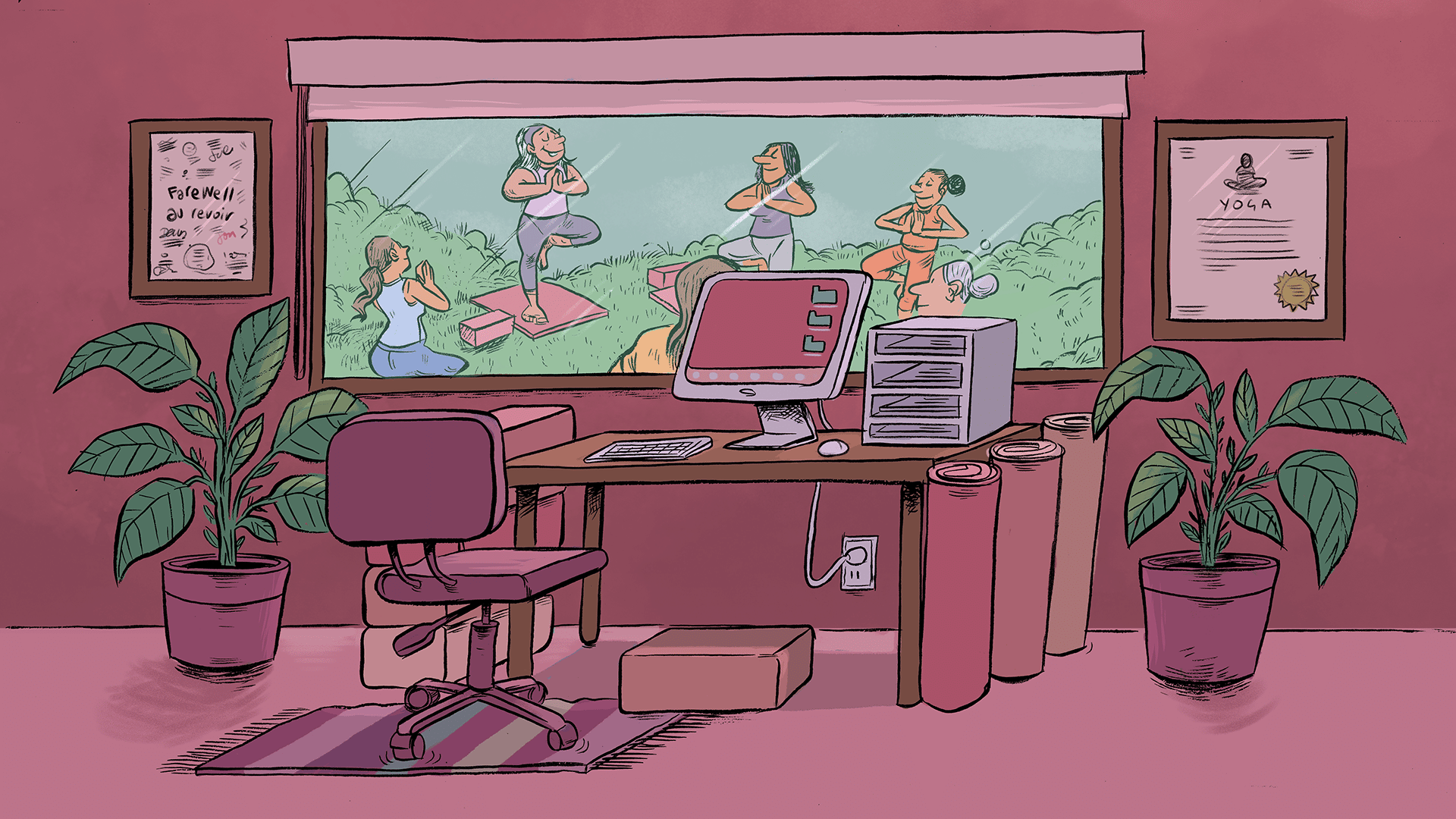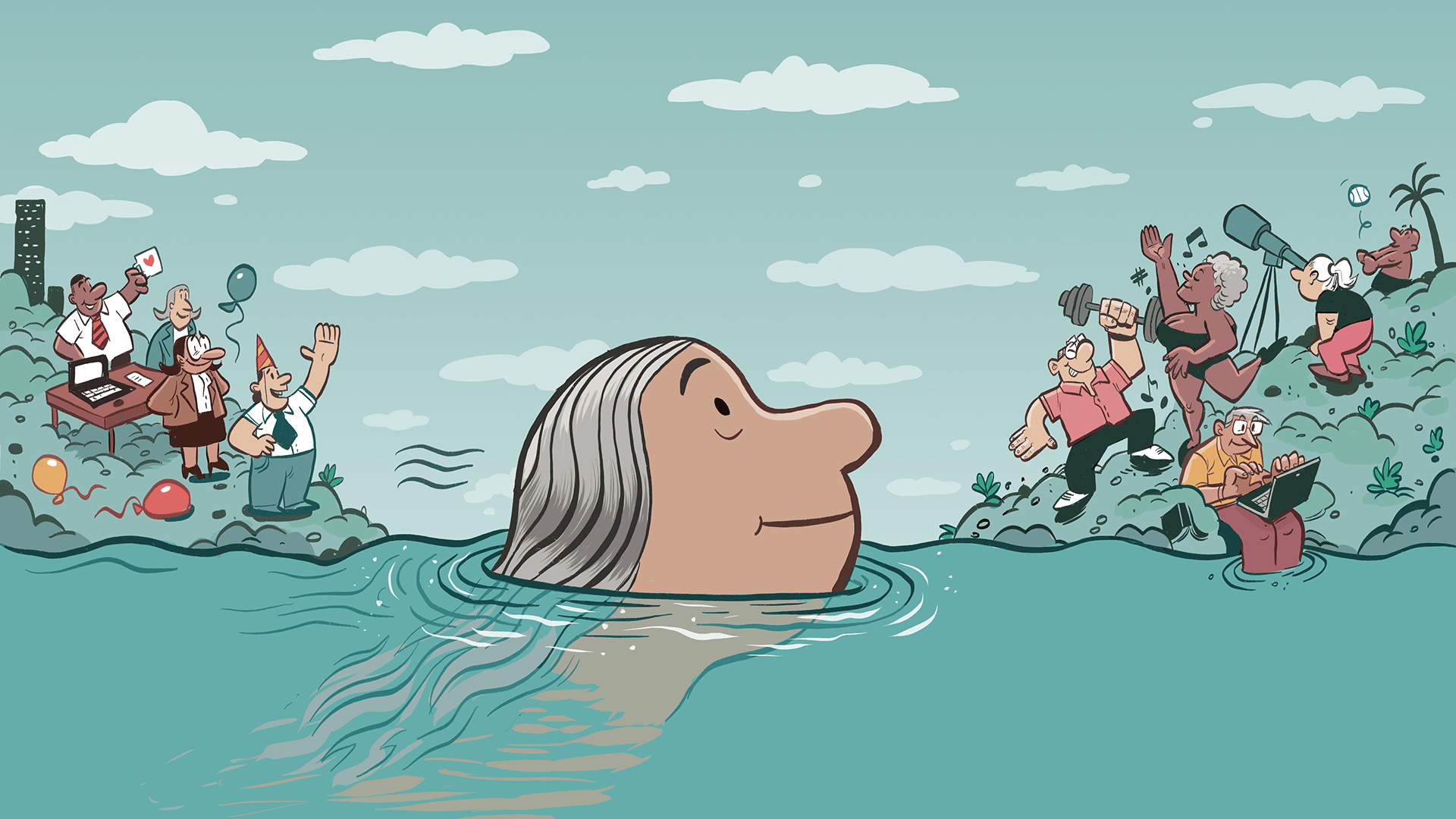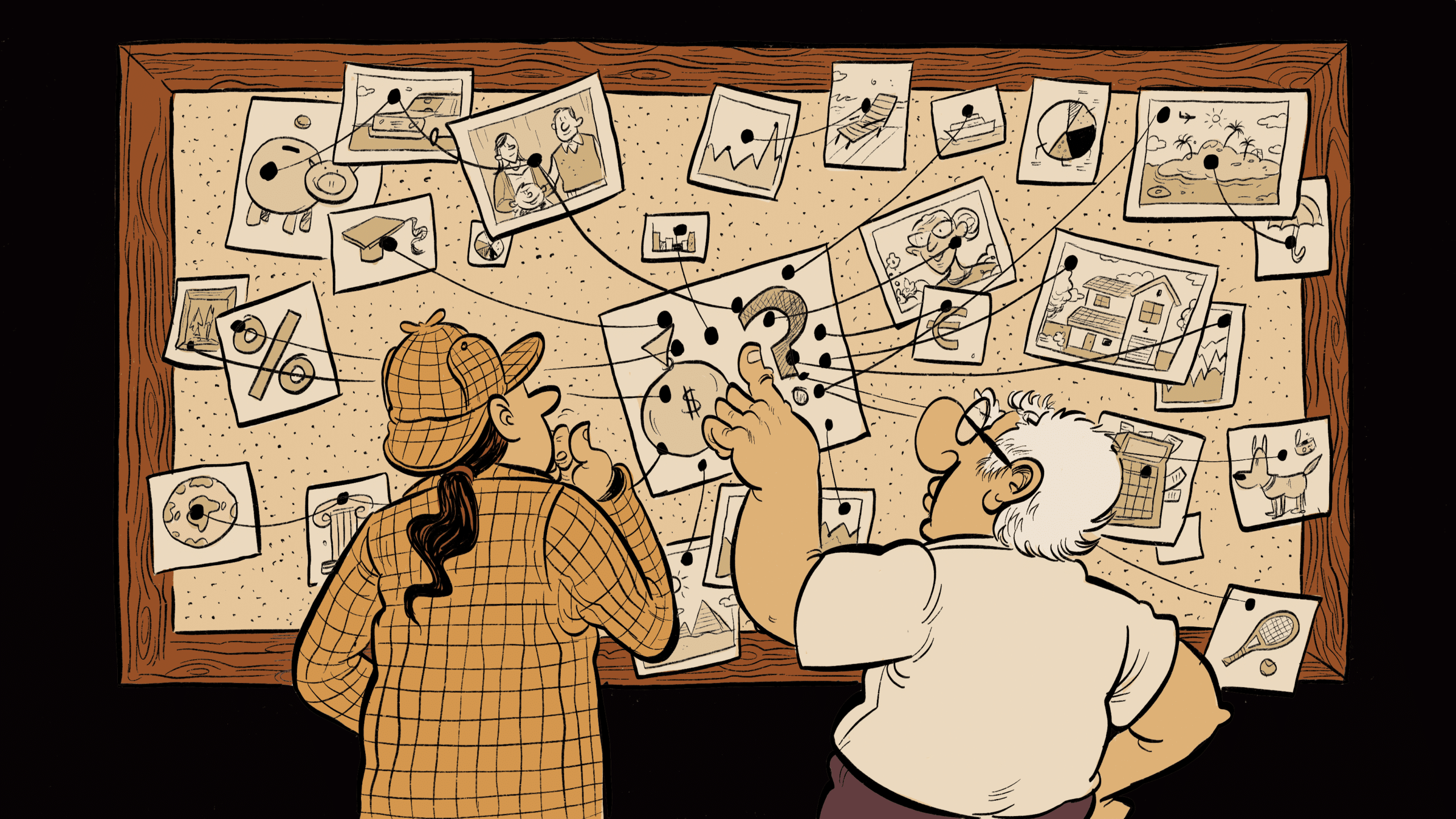
Retirement rethink
For many women, retirement is a new and exciting opportunity to embark on the next chapter of life. So why do so few of us make a proper plan for it? Here are seven ways that women approaching retirement may discover renewed purpose and fulfillment.

DR. NASREEN KHATRI
CLINICAL PSYCHOLOGIST AND NEUROSCIENTIST
There’s been a lot of talk about “quiet quitting” in the news recently — the idea that employees are doing just enough to meet their job description and little more. But what about another salient trend among retirees, “quiet returning”?
Many people may think of retirement as a “full stop” moment: an irreversible decision that signals a new life chapter. Although that may be true for some, in my experience, many other women are reconsidering what retirement means for them. Yes, leisure time with loved ones, travel and hobbies all have their place post-career. But what happens if you miss the challenge, meaning, camaraderie and even the money that came from your career?
In some cases, retirees may actually return to work because retirement has failed to offer them the fulfillment they expected.¹ For those who do return to work, there can be emotional, cognitive and physical benefits. Work can also provide daily structure, a sense of identity, social and intellectual engagement, even joy — all things that help contribute to overall health as we age.
While not everyone may want to continue working past the age of 65, it’s important to find purpose in what you do, whatever that might be. More than ever, retirement is becoming a process, not a discrete life event. With so many options to choose from, planning what to do once you retire can be complicated.
Let’s explore some of the things you might consider.
Planning a retirement that suits you
- Reflect on where you are in the life cycle
What you want to do with your time may be influenced by whether your children have fully launched, recently returned and if you have grandchildren. The same goes for caring for elders, including parents or spouses. According to a recent report from the National Council on Aging (NCOA), seven out of 10 women in retirement are caregivers.² If you're acting as someone's primary caregiver, it may be difficult to carve time out of your schedule to do other things. However, by reflecting on what is meaningful for you, and where you might be in five years' time, you can begin to make plans around these types of responsibilities. - Stay on top of your finances
Finances are often our first consideration when we think about retirement, and for good reason. They can help determine what you're able to do post-career. As you approach retirement, a financial advisor can help you design your post-career life and help ensure you have a solid plan in place to support your social and experiential goals. - Take a “test drive”
Consider all of the things you would like to do after you retire. Your list might include things like volunteering, time with family, freelance work or travel. Write them all down. Taking the time to think and write about this topic will be the first few kilometers of your retirement “test drive.” Let’s say, for example, that one of your post-career intentions is to spend more time with family and friends. Try to incorporate a little of that social time into your pre-retirement life as part of your test drive. It may be as easy as an extra 15-minute phone call each week to catch up with a friend. The point is to get started on a retirement intention that is important to you, while you are still working. Remember, every little bit counts! - Evaluate your relationships
According to a recent study, healthy relationships are the most important ingredient for a happy retirement — well-being and deep personal relationships are highly correlated.³ As you prepare for the future, remember to take some time to evaluate which relationships you want to continue to nurture into retirement. Are there any you have built in the workplace that you'd like to maintain? Being intentional about our relationships provides us with the social support we need and deserve. - Tap into flow activities
Make a list of the activities you enjoy or have enjoyed in the past — those that put you into a state of flow — where time passes quickly and you are fully engaged. These activities might be artistic, spiritual or athletic. Essentially, anything healthy that you enjoy and find yourself making time for — even if it means staying up late or fitting it into a busy schedule. Once you have your list, consider using these activities to help ease your transition into retirement and lower any stress you might feel as you process the change. - Become a mentor
At some point in your retirement, you may want to contribute to the greater good by mentoring the next generation. Life experience, wisdom, institutional and cultural knowledge are priceless and much-needed as the work world continues to evolve. Mentoring can take as little effort as a phone call or email. Or it can mean becoming an integrated advisor or consultant on a team. Regardless of your preferred time commitment or level of involvement, it's important to remember that someone out there needs to learn what you already know! - Make time to "landmark" in retirement (Are we having fun yet?)
Many consider retirement an endpoint. However, it’s really the beginning of a new life chapter. As such, you may want to set points in time (e.g., annually) when you pause and assess how things are going. What do you like about this phase of life and what could use some tweaking? Landmarking, or reflecting on where you are in life, can become more difficult after the age of 65 as the retirement landscape has few obvious markers. Prior to retirement, your landmarks may have included settling down, going to school or achieving a significant promotion. In retirement, you may want to set new intentions and mark them on the horizon of your life.
Retirement 2.0 is a process
I like to think of retirement as a process, rather than a singular event. In many ways, it is the continuation of the life you are already leading, with many of the same joys, relationships, activities and challenges. That may mean continued work, and it may not.
At the same time, retirement can also bring age-related changes and personal health issues. As such, it’s best not to hold out for “someday,” but rather begin to incorporate what you imagine you may enjoy during retirement now. A proactive approach to retirement can allow you to test drive many elements of your retirement without having to wait for the change itself.
We all hope for a healthy, secure and fulfilling retirement. Since hope is not a strategy, it can help to meet with a financial advisor to begin designing the retirement you desire and help ensure that your social and experiential goals are on firm financial ground.
Dr. Nasreen Khatri is an award-winning registered clinical psychologist, gerontologist and neuroscientist with 20 years of professional experience. She specializes in the assessment, treatment and research of mood and anxiety disorders in women and aging at the Rotman Research Institute in Toronto. She is also a Scientific Officer of the Centre for Aging and Brain Health Innovation at the Baycrest Centre.
1. “Women and Retirement: When They Retire, How They Plan, and Where Help Is Needed,” National Council on Aging, March 22, 2022, https://preview.ncoa.org/article/women-and-retirement-when-they-retire-how-they-plan-and-where-help-is-needed.
2. Ibid.
3. “What the longest study on human happiness found is the key to a good life,” The Atlantic, January 19, 2023, https://www.theatlantic.com/ideas/archive/2023/01/harvard-happiness-study-relationships/672753/.
















